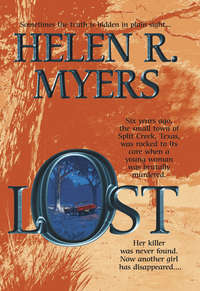
Полная версия
Almost a Hometown Bride
People living sparely could do without such luxuries as a phone, especially someone not anticipating a call from anyone any more than she desired one. Giving up on arguing with the woman she owed her job and home to, Merritt waved and detoured to the back room where she changed from sneakers into boots, slipped on her jacket and retrieved her big insulated tote that she’d carried her baked goods in.
Two other waitresses with school-age children handled the lunch crowd. Leroy took over the grill, while Alvie went upstairs to rest her feet or run errands. Then Alvie returned while Leroy took off, since the dinner crowd usually left the counter empty enough for Merritt and Nikki to manage on their own.
Almost—its name origins in dispute forever—began perhaps by survivors of an Indian attack, almost making it through the Rockies on their way to Idaho, then Washington. Another claim was that a wagon train had almost been wiped out by a deadly winter and disease. However it was christened, the town had remained the same size building-wise as it was at its peak prior to World War II. It was a two-traffic-light community, six blocks in all, which included one bank, two pharmacies, five churches and a school that still housed kindergarten through grade twelve. The only difference was that half the stores on back streets were vacant now. A few were collapsing from neglect, having been tied up in estate disagreements. There was a good deal of talk about what to do to sustain what economic stability there was and encourage tourism from the interstate only two miles south. Merritt felt she had no right to get involved with any of that, but hoped things worked out for the residents, particularly the business-people.
Living in Alvie’s house was a rent-free agreement since she provided all of the baked goods for the eatery. Merritt paid half of the electric bill, which remained in Alvie’s name, so funds were just taken out of her pay. She was thinking about that bill which she expected to arrive today or tomorrow, as she started around the bend that hid the cabin from downtown’s view. That compromised view made it susceptible to vandalism, which was another reason why Alvie was eager to have it lived in.
The wood-frame cottage with the peeling gray paint consisted of a combination kitchen-dining area and a living room with just enough room for the sofa and chair in it, as well as the wood-burning stove. The kitchen stove was propane, but Merritt had gotten the hang of it quickly enough. The bathroom was off the back door, by the washroom, and the bedroom was on the other side of the dining area. The full-size bed was perfect for someone of her size, but she couldn’t imagine a couple even Alvie and Leroy’s size trying to sleep comfortably on there for long.
With no central air or heat, the wood-burning stove required careful tending in cold weather. While Alvie kept the place in a good supply of wood, it had taken Merritt most of her first winter in Montana to learn how to finesse its operation.
Merritt lifted her face to the sky and felt the first flurries sting her nose and cheeks. Not only did the damp cold seep through her bark-brown, thrift-shop jacket and thin frame, every step cost her extra energy due to the pain now spreading across her back because of the strain on her muscles. She would need to lie down for a few minutes with a hot compress once she reached the cabin, and that would only make her busier the rest of the day if she was to get her baking done in time. Thank goodness she’d already completed her weekly washing and cleaning. She definitely wouldn’t have to worry about anyone coming to visit her and taking up her time because, while she was polite to anyone who spoke to her, she had no friends to spend her off-hours with. That was the price she paid to ensure she could continue to live here safely. From her perspective it was an acceptable cost.
But as she rounded the curve that gave her the first view of the cottage, she immediately saw something that triggered concern. There was a black truck parked on the street in front of the property. Had someone experienced engine trouble or a flat? No one had passed her as she’d walked, and she didn’t recognized the old, paint-worn pickup. Yet the vehicle was facing away from her, suggesting that’s what must have happened.
What if someone was casing the place? If they had a good reason to be there, they would have pulled into the driveway, wouldn’t they? And yet she didn’t see anyone, just the truck. Could they already have broken in?
Running wasn’t an option unless she wanted to end up flat on her face for sure this time, but Merritt increased her pace, which had her breathless and her face strained with pain by the time she got to the driveway. There she saw a man climb the far steps of the porch and return to the front window where, with his hands framing his eyes, he tried to look inside the front window.
“Hey! What do you think you’re doing?” she shouted.
He turned immediately and Merritt’s breath caught in her throat. It was Cain Paxton! In a heartbeat, her indignation vanished, only to be replaced by anxiety. She self-consciously limped up the short drive, and was panting when she reached the base of the porch stairs.
“How did you know where I live?” she demanded as wind whipped at her jacket and hair.
He shoved his hands deep into the denim jacket pockets and tucked his neck into his shoulders. His black hair, though not overly long, whipped wildly around his face. “I didn’t. I stopped thinking the cabin might still be empty. Thought I’d ask Alvie how much she wanted for rent.”
“It’s taken—by me.”
He gave her a slower head-to-toe inspection than he had before, and then looked over her shoulder. “Heckuva day to be without your car.”
“I don’t have one.”
That earned her a frown that made him appear tougher and angrier. Add that to the wind and cold’s effect on his hair and square-jawed face, and she thought it gave him an otherworldly air—an unholy one. How on earth could Leroy think she could be taken by such a force of nature, even without knowing her past?
“You walked the whole way?” he asked, his tone as scornful as his expression. “What kind of glutton for punishment are you?”
That was just what she needed at this point, a warrior god with a vegetable for a brain. “A poor one,” she snapped back.
Cain fell silent again, but he continued to study her. Merritt wanted badly to get inside and out of the wind, but she wasn’t budging while he was blocking her way.
“How long have you been in Almost?” he finally asked. “Not long enough to learn that it’s dangerous to walk outside town by yourself.”
“Sorry to disappoint you, but I’ve been doing just fine. From what I’ve been told, I guess I arrived not long after you left.”
The right corner of his hard mouth twitched and a timeless sensuality lit in his black eyes. “So you’ve been asking about me?”
“What I asked was why some of our regulars are so uptight over your return. Alvie gave me a quick recap.’”
Cain snorted. “No wonder you looked like a lamb ready to bolt when you saw me walk in. Relax. Having just arrived, I’m not about to get myself a one-way ticket back into prison. Besides,” he added with another cursory glance over her shivering body, “there’s not enough to you to make an appetizer for someone with my tastes.”
“Rape isn’t about desire,” she said without thinking. “It’s about anger and control.”
“Is that so?”
Merritt all but lost the rest of her courage under his narrow-eyed stare. She felt as though he was doing more than stripping her; he was peeling the layers of her skin. Seeking what, she didn’t know. But she had to lower her gaze in self-defense, afraid that her cold shivers would turn into an outright shudder. Belatedly, she thought about how to casually dig for the pepper spray buried in the large tote beside her wallet.
When she didn’t come back at him with any cheeky answer, he asked almost kindly, “What’s your name? It’s only fair,” he added when she shot him a doubtful glance. “You know mine.”
“Merritt Miller.”
“And I thought I got stuck with a whopper. Was your daddy hoping for a son?”
“No, I was named after my paternal grandmother. I’m told she was very pretty and had a sunny disposition, and they called her Merri. Me, they called Merritt.” The wind was bringing tears to her eyes and she blinked them away, hoping he didn’t see them and misunderstand. “Now that we have that out of the way, would you mind going on about your business? I have to get the stove ashes emptied and a new fire going. You may not have heard that there’s a storm coming, and I’m working the dinner shift. It’ll take half the night to warm that cabin if I don’t keep a good bed of coals in that thing.” As soon as she spoke, she wanted to clap her hand over her mouth. Why tell him the house would be empty later?
However, Cain didn’t focus on that. He asked instead, “You mean you’re walking back to town? What the hell is wrong with those people? Why doesn’t Leroy or someone pick you up?”
“Because they’re busy. Besides, I need to walk whether I want to or not. It’s therapy.”
“Therapy.” Once again his gaze swept downward. “You’re healing from an operation?”
“No.”
“So you should have an operation, but you won’t, and to keep your hip from totally freezing up you have to keep moving?”
“Something like that.”
“Bet that feels like crap. What happened?”
For a seemingly quiet man, he’d suddenly turned into a blabbermouth. “I fell.”
“Uh-huh. Probably from clumsiness again, like this morning?”
Merritt knew what he was trying to do; however, the words stung anyway. “That’s right,” she replied, stiffly.
Cain glanced at the dwindling pile of firewood on the porch. “I’ll get the stove going for you, but you need more wood than what’s left on your rack.”
“There’s more in back. I just haven’t brought it up yet.”
“I’ll do that, too.”
Dear heavens, was he looking for work? “Mr. Paxton, I meant what I said about being poor. I get by with what I make at the café, but that’s about it.”
“Did I ask you for a job?”
“No.”
Maybe it was her honest reply and expression that made him relax and shrug. “You led me to the best table in the café for someone in my situation. You didn’t treat me like poison, or worse yet, dirt, as some have. Can’t that be reason enough?”
She’d only done her job, and she wasn’t one to buy into gossip. As far as she was concerned, he’d needed to be seated before he cost Alvie business. As a new, stronger blast of wind cut through her jacket, she couldn’t quite stifle a groan. She wanted a hot mug of tea—and a painkiller—more than she wanted to argue semantics or social prejudice with this man. Besides, if he was a threat to her, he could easily have already made his move.
With a curt nod, she climbed the stairs in the only way she could—left leg leading, right leg slower to follow. When she made it to the porch, she unlocked the door.
The cabin was cooling, but not yet uncomfortable. Merritt went immediately to the fish tank and tapped on the glass. “I’m back. It’ll be better in a few minutes.”
The door closed with a thud. “You’re talking to fish?”
Merritt didn’t bother looking over her shoulder; she could tell by the tone of Cain’s voice that he thought her ridiculous. “I work too many hours to have a dog or cat.” She wasn’t going to admit there were cats in the barn. They were wild—or at least independent—and she was a bit scared of them.
“How smart is it to torture yourself for a couple of overpriced goldfish?”
“They know their names—Wanda and Willy.” She finally made herself glance back at him and got a blank stare in return. “From the movies A Fish Called Wanda and Free Willy?”
With a brief shake of his head, Cain crossed to the stove and flipped open the damper in the flue. That’s when his expression changed. He’d undoubtedly noticed what she’d been fretting about since lighting her first fire this season.
“It feels like the damper is about shot. It’s hanging on one side. By chance do you have another?”
“Do you mean this?” Merritt went to the brick wall behind the stove and picked up the round piece of metal that had been on the ledge for as long as she’d been a resident. Early on, Alvie had told her it would need to be changed one day when the old one wore out. “I’d hoped it would last until spring when I could let the stove cool enough to work in there.”
“You thought you could do this yourself? First of all, your arms are too short to reach in and up that high. Second, how did you expect to hold it in place and still stand outside and slip in the rod to secure it?”
“I guess I didn’t think,” she admitted.
He grunted his agreement and opened the door on the stove to gauge what he was dealing with. A moment later, he slipped off his jacket and tugged his T-shirt over his head.
“What are you doing?” Merritt gasped.
“These are the only clothes I own at the moment. I’d like to avoid ruining them.”
The last man she’d seen in this state of undress had been her stepbrother, Dennis, whose skin was as pale as a corpse with a beer belly that hung so far over his jeans he resembled cupcake batter overflowing a pan. In comparison, there wasn’t an ounce of flesh on Cain Paxton’s bronze body that wasn’t hard muscle.
“But you’ll burn yourself.”
Testing the side of the stove with his hand, Cain shrugged. “It’s cooled down quite a bit. It shouldn’t be too bad. I’ll need you to help, though.” He pulled the stem from the outside of the flue and the subsequent rattle and thud was indication enough that the old damper fell into the remaining few coals. “See this?” He showed her the steel pin with its twisted end designed for control by hand of the level of airflow. “When I stick the new damper up into the stack, you watch through that hole. When these slots are aligned to the opening, you stick this pin back through. You have to slip it all the way and make it come out the other side of the stack. Understood?”
“Is that even possible?” The slots weren’t half the width of her pinky nail—and she’d heard too often than she had the hands of a preteen.
“It better be, or you’ll freeze tonight as all of the heat rushes up and out of here through the stack.” After opening the stove door, he nodded. “The buildup of ashes over the remaining coals will help suppress the heat,” he said, lowering himself to his knees. “I’ll leave them until I’m done.”
Merritt didn’t think he would get so much as his head and a shoulder into the opening, but he managed. Nevertheless, it took several tries to get the damper replaced, partly because Merritt’s hands were shaking from nervousness, partly because Cain had difficulty maintaining the correct position. But—after several muffled curses from him—suddenly the pin slid all the way through and out the opposite hole.
“Thank God,” she whispered, almost weak with relief.
“As soon as I clean up, I’ll get rid of those ashes and get you that wood,” Cain said, trying not to touch his jeans as he rose to his feet.
Merritt saw how filthy he had indeed gotten on her behalf. “Please, the bathroom is to the left just before you go out the back door.” She pointed through the kitchen. “Help yourself to soap and towels. Whatever you need. I really am grateful for your help, Mr. Paxton.”
“The name is Cain. The only Mr. Paxton in these parts wouldn’t take kindly to hearing you using his name in reference to me.” Cain grimaced at his hands and the soot smeared over his arms and chest. “Do you have a couple of old rags? I don’t want to ruin any frilly lady things. This creosote won’t wash out easily.”
As she wiped at a miniscule streak of soot on her hands, Merritt felt another blush threaten. “I don’t own any frilly things. You use what you need to, and I’ll put on a kettle for tea. You’ll welcome that after being out in the wind again.”
Chapter Two
As he headed for the bathroom, Cain’s mood soured anew. He didn’t want any tea, he wanted a beer … or better yet something stronger. But he doubted Miss Merritt Miller had ever tasted anything more potent than Communion grape juice, let alone allowed anything alcoholic in her house. That was yet another reason to get out of here, he thought, shutting the door behind himself.
It was ironic that he’d arrived in town early this morning with a deep-seated fire in his belly for justice; however, he’d barely begun digesting breakfast, and this scrawny, ghost-pale woman had succeeded in resurrecting the last two or three ounces of human compassion left in him and thrown him off his plan. He’d had no choice but to help her; there was no way she could have managed to repair the stove herself. Hell, he thought, gingerly checking the spots on his inner right arm and abdomen, he’d gotten burned himself a couple of times on the still-hot metal.
No telling what all needed attention around the place, he mused as he turned on the hot water tap and started soaping his hands. He remembered the house being old when he was a kid. Alvie and her first, then second, husband were living there then. And a baby. To the best of his recollection, the child had died in infancy—some influenza that had wreaked havoc on the area.
The Miller girl was keeping things spotless, he would give her that. As he noted the neatly folded, dark blue towel on the rack, which would do nicely for drying off, he figured she would get all puffed if she knew he was thinking of her as a girl—she was probably in her mid-twenties. But she didn’t need him thinking of her as a woman. Having been deprived of female company for over three years—counting the months he’d gone crazy sitting in the county jail while his worthless public defender was bulldozed by Paxton money and influence—his fingers itched to bury themselves in Merritt Miller’s lush brown hair. She wore it in a loose braid down her back, and not once did it sweep saucily across her cute butt. She was that quiet and steady of a mover. Everything moderated and even, despite the hip—maybe because of it.
Her scent was here, which made sense—it was the soap. Simple, clean. On her body it became feminine and delicate. Surrounded by it again, he breathed in deeply and almost groaned with pleasure. To regain his equilibrium, he leaned into the sink and scrubbed his face and hair. The amount of work it took reminded him that he needed a haircut. Badly.
He ended up having to use the hand towel as a washrag to get the soot off. By the time he was done, the burn on his belly and arm were seeping, so he checked the medicine cabinet for antibiotic ointment. He found it and a gauze pad for the worst one on his abdomen. He also found a package of throwaway razors. He’d inherited the Native American sparseness of body hair, but there was enough to get his attention, so he reached for one of the razors, too.
While there wasn’t much room to maneuver in the small confines, Cain took a small pleasure in the privacy of the closed door. That’s the one thing he had been most offended and affected by in prison. He was tempted to strip and step into the tub under the hot shower spray, but the little waitress didn’t deserve to be thrown into another tailspin. He did, however, let himself imagine her behind that clear plastic shower curtain, naked and sleek from the water sluicing down her body. Her head would be tilted way back, her wet hair cupping her sweet bottom the way he wanted to.
What is her story? he wondered as he hung the soaked towels over the shower rod. While hardly beautiful by today’s commercial standards, she had a child’s flawless skin and pleasant enough, though not remarkable, features. Her serious eyes were a shade lighter than her mahogany hair. When she wasn’t studying him like a dubious owl, there had been a sadness in their depths, and secrets. Those eyes would probably make heads turn if she used a little makeup, as would her mouth. It was small, but formed like a bud. Hell, he thought, if she just licked them moist, she could make a man lose his train of thought. If she would lick him—
A spasm in his groin reminded him that he’d been successful in the weight room and needed to look into getting a size larger jeans. He hissed as he adjusted his clothing, then slid on his T-shirt.
Get the damned wood for her and get out of here.
Yes, he had to go. Word would spread quickly that he was back, and he needed to move on to the reservation and see his grandmother. With the storm about to make driving difficult, he hoped she would put him up for a night or two until he figured out if it would be possible to get a job in the area, or if old prejudices would force him to move on. No doubt his grandmother could use a hand around the place, too.
He raked his hands through his wet hair and wished he’d taken the time for a haircut. No wonder Merritt, the little ferret, was spooked by him, he thought as he checked his reflection one last time before emerging from the bathroom. Better, he thought, but with his chin-length hair, he looked like one of his wilder ancestors.
Merritt was taking the tea bags out of the mugs and adding honey and lemon as he reached her. “I appreciate the hospitality,” he said. “I didn’t know where you wanted the towels, so I spread everything on the shower curtain rod.”
“That’s fine. And you can call me by my name. It’s Merritt,” she said as though guessing he hadn’t paid attention before.
“I remember.”
“I’ll tell Alvie how kind you were.” She pushed the mug across the counter toward him.
Noting her hands were trembling slightly, he murmured his thanks. “You might want to rethink that idea. She’s always been decent to me, but she might not like the idea of me being anywhere near you—or being allowed into her house.”
Merritt glanced up at him from beneath fine but surprisingly long lashes. “She’s the one who told me about your uncle and the price you paid for trying to get justice for him. I’m sorry.”
“Me, too—since I didn’t succeed.”
“Excuse me?”
Certain that Alvie had shared the official Paxton spin on things, he was determined to at least get his side told to someone other than people who would see the truth was buried. “My uncle lived long enough to give me a description of the vehicle and a partial license plate number. That told me the truck belonged to my father’s ranch, and the driver turned out to be the ranch foreman, Dane Jones. I tracked him down determined to haul his worthless butt to the sheriff’s office, only to find out someone beat me to him. Someone had knocked him senseless. And when the deputies arrived right on my heels, Jones let me take the fall for what happened to him.”
“That’s terrible. Couldn’t your father intervene?”
“He died before I was born,” Cain replied grimly.
“What about his father, your grandfather?”
When Cain sent her a “we’re done talking” look, Merritt grew flustered. “Surely the authorities could see that your hands weren’t bruised and that you hadn’t been in a fight?”
“It’s a long story.” He shouldn’t have said as much as he did, but he’d wanted her to understand what it meant to sympathize with a half-breed who was considered an outcast even by his own flesh and blood. The more she kept her distance, the better off things would be for both of them. Ignoring the tea, Cain went into the living room where he slid into his jacket and reached for the galvanized steel bucket behind the stove, then the shovel on the implement stand.
“I take it that your mother has passed, too?” Merritt asked from the wide kitchen entryway.
“I came into the world and she went out.”
“Dear God. I’m sorry. Again.”
“Ancient history. Look,” he said, growing increasingly uncomfortable, “let me just get this stove cleaned out, and I’ll get your wood. There are things I need to do.”
“Of course. I can manage on my own now. Please don’t make yourself late for my sake.”
Embarrassment turned her cheeks the color of raspberries, which in turn made Cain feel like a creep. “I don’t mean to insult you,” he said with a patience he didn’t feel. Why was he treating this little pest with kid gloves? He didn’t care about anyone or anything anymore. At least that’s what he’d told himself six thousand times while behind bars. “I just— I know you feel uneasy around me. For the record, that goes both ways.”









